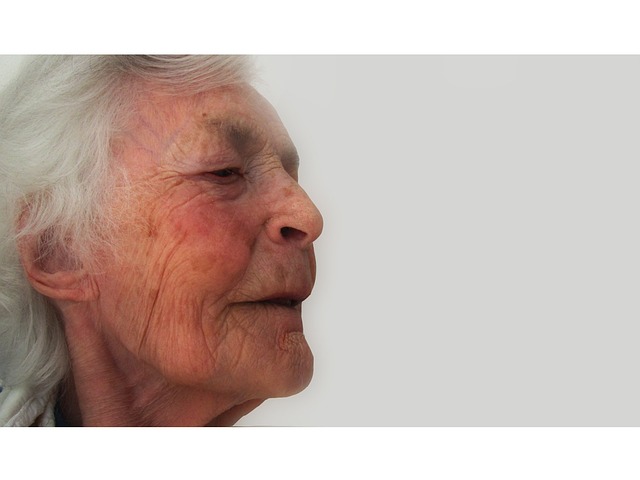For those with sensitive skin, finding hypoallergenic jewelry options can be a challenge. This guide explores silver-coated jewelry as a suitable alternative, delving into its benefits and historical significance, particularly through the lens of Norwich Antiques. We’ll discuss the causes and symptoms of sensitive skin, highlighting how silver’s anti-inflammatory properties offer relief. Additionally, we provide tips on selecting high-quality pieces and caring for them to ensure longevity.
- Understanding Sensitive Skin: Causes and Symptoms
- The Benefits of Silver for Sensitive Skin
- Norwich Antiques: A Historical Perspective on Silver Jewelry
- Identifying High-Quality Silver Jewelry for Sensitive Skin
- Care Tips for Maintaining Silver-Coated Jewelry for Longevity
Understanding Sensitive Skin: Causes and Symptoms
Sensitive skin is a common concern for many individuals, and it’s essential to understand its causes and symptoms to make informed choices when selecting personal care products or accessories. This particular type of skin has a heightened sensitivity to various stimuli, which can lead to discomfort, irritation, or even allergic reactions. Several factors contribute to sensitive skin, including genetic predisposition, environmental conditions, and certain health conditions.
One of the key triggers for those with sensitive skin is exposure to irritants and allergens. For instance, wearing metal jewelry, especially those made from traditional materials like silver, can cause reactions due to the potential presence of nickel or other alloys that trigger sensitivity. Norwich antiques, known for their intricate designs, might be beautiful but could also be problematic for those with delicate complexions. Recognizing these triggers is a crucial step in managing and caring for sensitive skin effectively.
The Benefits of Silver for Sensitive Skin
Silver has long been recognized for its skin-soothing properties, making it an excellent choice for individuals with sensitive skin looking for durable and hypoallergenic jewelry. The metal’s anti-inflammatory nature can help alleviate redness, itching, and irritation commonly associated with certain skin conditions like eczema or rosacea. Unlike some alloys that may trigger allergic reactions, pure silver is less likely to cause sensitivity issues due to its natural purity.
Norwich antiques, known for their craftsmanship and attention to detail, often feature silver jewelry designed with sensitive skin in mind. These pieces are meticulously created to be gentle on the skin while still offering the aesthetic appeal of a precious metal. The positive interaction between silver and the skin can promote healing and reduce rashes, making it a sought-after option for those seeking comfortable yet stylish accessories, especially when exploring vintage or antique designs.
Norwich Antiques: A Historical Perspective on Silver Jewelry
Norwich, a city rich in history and craftsmanship, has long been known for its exquisite silver jewelry. Historically, the city’s silversmiths were renowned for their intricate designs and high-quality work, making Norwich antiques highly sought after. These antique pieces not only hold aesthetic value but also represent a time when craftsmanship was a true art form.
The tradition of silverwork in Norwich dates back centuries, with many families passing down their skills from generation to generation. The city’s rich heritage in this field is reflected in the intricate details and unique styles found in Norwich antiques. Today, these historic pieces are not only collectibles but also offer a connection to the past, making them appealing to those who appreciate both beauty and tradition in jewelry.
Identifying High-Quality Silver Jewelry for Sensitive Skin
When shopping for silver jewelry, especially if you have sensitive skin, identifying high-quality pieces is paramount. Look for hallmarks of purity like the “925” stamp, which indicates sterling silver—a standard recognized worldwide for its minimal risk of allergic reactions. Norwich antiques, known for their craftsmanship and historical value, offer a wealth of options. These pieces often come with detailed certifications that guarantee their metal content, ensuring you’re investing in something safe and durable.
Additionally, consider the finish of the jewelry. A good-quality silver coating should be smooth, even, and free from any visible imperfections or rough edges. Avoid jewelry with an overly shiny or new appearance, as these might indicate the use of cheaper metals or coatings that could irritate your skin. Norwich antiques, given their age and craftsmanship, are less likely to have such issues, making them a reliable choice for those seeking hypoallergenic silver jewelry.
Care Tips for Maintaining Silver-Coated Jewelry for Longevity
To ensure your silver-coated jewelry from Norwich antiques remains in pristine condition, start by storing it properly. Keep pieces separate to prevent scratches and tangling. Opt for a soft, cloth pouch or box to safeguard against dents and chips. Avoid exposing your jewelry to direct sunlight or extreme temperatures, as these can cause discoloration.
Regular cleaning is another key to longevity. Use a soft-bristled brush to remove surface dirt and oils. For deeper cleaning, mix mild soap with warm water and gently scrub the jewelry with a damp cloth. Rinse thoroughly and dry immediately to prevent water spots. Steer clear of aggressive chemicals or abrasive cleaners that can damage the silver coating over time.
For those with sensitive skin, silver-coated jewelry offers a luxurious and hypoallergenic alternative. By understanding your skin’s unique needs and choosing high-quality, ethically sourced pieces from experts like Norwich Antiques, you can enjoy the beauty of silver without the irritation. With proper care, these timeless treasures will flourish, allowing you to indulge in their gleam and grace for years to come.
